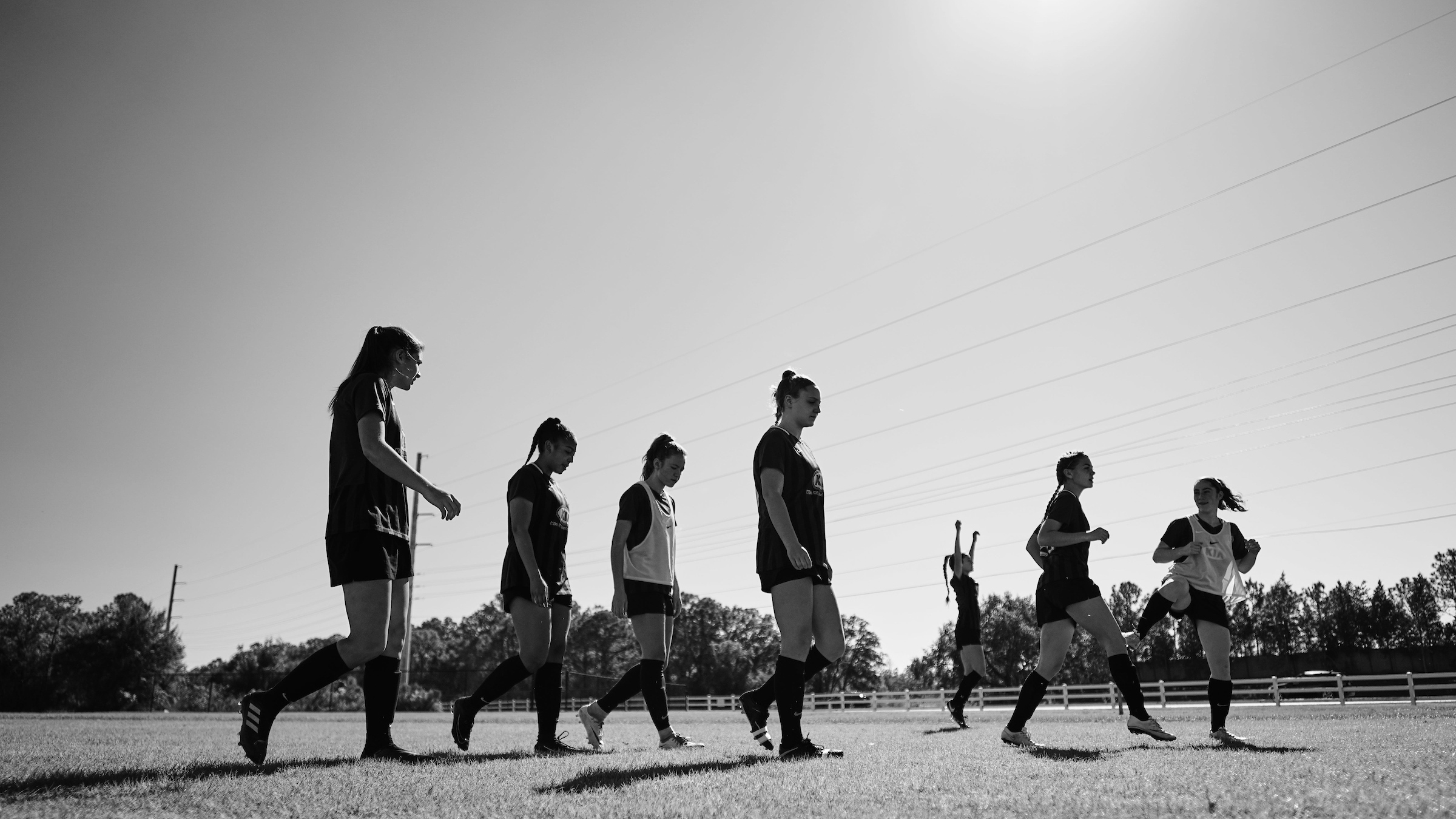One of the most critical steps of the college recruiting process is the first one: writing the initial letter of interest. It’s also one of the most nerve wrecking. For any player, reaching out to someone who you don’t know and telling them that you’re interested in their program can be scary.
But being able to craft letters to people that you may not know and sell yourself is something that one can work on and will have to do many times in life (There are many similarities between a cover letter looking for a job and college recruitment letters). It’s a skill that can be developed, honed, and in time the scariness can be reduced.
So, how do you start the letter writing process? Here are some quick tips on how to craft a solid and effective college recruiting letter.
Tip #1 | Outline What You Are Going To Say First
When it comes to good letter writing, preparation is the key. Whether it’s writing a letter, a paper for school, or a text to a friend or family making sure that you have thoughts together first is important. When we write, we want the best parts of ourselves to come out and to give those reading it the feeling that they have a good understanding of who we are and what we have accomplished. For college recruitment letters, that includes a little bit about yourself, both on and off of the field.
Some examples of good things to talk about include:
- What year you graduate;
- What positions you play;
- Some achievements that you have had on the field (For example, you could say: “This season for my club Potomac Soccer Association, I scored 19 goals while helping the side to the US Youth Soccer National League Championships. In addition, while playing for my high school team Walt Whitman High School we made the Maryland 3A State Championships.”
- What subjects are you interested in at school?
- What clubs and organizations are you involved with?
- Why you are interested in this college (More on this in a minute)
You can come up with other ideas later, but you want to have a rough sense of what you want to express in the letter. Having it written down gives you something to look back on later as you’re editing it prior to sending.
Tip #2 | Write The Introductory and Greeting Paragraphs Last
Recruitment letters should generally be broken up into 4-5 paragraphs with about 3-4 sentences each.
- Paragraph 1: Introduction/Greeting
- Paragraphs 2-4: Why you are interested in playing for this program; athletic achievements; academic achievements
- Paragraph 5: Closing
Writing an introductory paragraph first can be difficult because you’re going in cold. By going through the meat (paragraphs 2-4) of the letter first, you will have a stronger sense of why you want to play for this particular college program and what you bring to the college/university. By the time you finish the remaining parts, you should be able to consolidate all your thoughts into one sentence that will help sell you to the coach reading your letter.
Tip #3 | Keep Your Introductory Paragraph Simple
Introductory paragraphs should be no more than 2-3 sentences, and should be quick and to the point. The first sentence should be a quick hello:
‘Hello! My name is Sean Maslin and I am a member of the Class of 2023. I’m interested in learning more about the University of Maryland College Park soccer program’
The second sentence is a bit trickier, because once again you’re selling yourself. Once again, keep it simple and provide some basic highlights of yourself:
‘I currently play travel soccer for Potomac Soccer Association, and after reviewing your program information I feel like I would be a great fit for your program.’
Tip #4 | Use Your Voice, Not Someone Else’s
Although writing doesn’t come natural to everyone, it’s an important tool that you will utilize every day for the rest of your life. That’s why it’s important that you take your time, think about what you want to say, and put your ideas either down on paper or on a computer. While your parents should certainly read through your work, players should be the ones writing their college recruiting letters. Coaches want to hear from players because these are the individuals that they will be working with over the next four years.
One of the best ways to find your voice in a college recruiting letter is talking about the things that you’re doing off of the field. Coaches want to know what excites you and what you’re passionate about. That may sometimes be something soccer-related, it may also be a community service project that you are working on or a paper that you recently wrote. Tapping into those feelings and emotions will make your letter that much more powerful and impactful.
While it can be a bit of a pain, finding your voice in your writing will have a long-term positive impact on you in the years to come and will certainly help you in the college recruiting process.
Tip #5 | Closing Paragraph-Next Steps
Once again, this should be no more than 2-3 sentences. The first should be a quick thank you for reading through your letter”
‘I want to thank you for taking the time to read through my message and reviewing my information.’
With the second and third sentences, you can take the opportunity to let them know you are interested in further opportunities whether it’s an ID Camp or, depending on where you are in the college recruiting process, an official visit. You can also use this as a chance to highlight some of the upcoming showcases that you’re participating in.
For the signature, make sure to include your name, phone number, and email address. If this is a letter that you are mailing, you can also include a QR code to your college recruiting profile.
Tip | #6 Edit, Edit, Edit
As always, the editing process is critical to writing a good letter. No one is a perfect writer and spelling/grammar mistakes will happen. The key is giving yourself adequate time to review and correct those mistakes. Writing at the last minute will never, ever turn out better than a well-prepared and revised letter.
If editing isn’t your strong suit, ask your parents, coach or teacher to give it a second look. Asking for help is hard, but when it comes to writing, it’s very important.
Have questions about writing/social media and the college recruiting process? We are looking to do a mailbag next week! Email your questions to [email protected]








